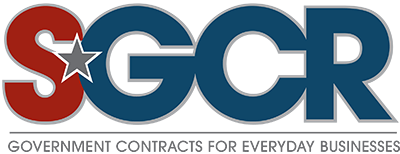Want to expand your small business with government contracts? This article covers how a small business government contractor can qualify, find opportunities, and thrive in this space. We’ll explore essential resources, strategies for winning contracts, and compliance requirements.
Key Takeaways
-
Small businesses must qualify for federal contracts through various programs like the 8(a) Business Development, HUBZone, and Women-Owned Small Business Federal Contract programs, which ensure fair competition and provide set-aside contract opportunities.
-
Federal resources like SAM.gov and the Dynamic Small Business Search database are essential for small businesses to find and compete for government contracts, offering centralized procurement opportunities and increased visibility to federal agencies.
-
Compliance with regulations such as those from the Defense Contract Audit Agency (DCAA) and other industry standards is crucial for maintaining eligibility and good standing for federal contracts, ensuring financial accuracy and adherence to specific requirements.
Navigating Federal Government Contracts

Small businesses can tap into a significant revenue stream through the wide array of products and services the federal government contracts. With over $700 million spent annually on contracted projects, the opportunities are immense. Securing even a fraction of these federal contracting dollars can catalyze substantial growth and expansion for many small businesses.
Recognizing the potential, the U.S. government has ramped up efforts to reserve more contracts specifically for small businesses. The Office of Management and Budget (OMB) is actively introducing strategies to encourage federal agencies to work with these businesses, ensuring that they have a fair shot at securing valuable contracts. This is not just about providing opportunities but also about fostering an ecosystem where small businesses can thrive and contribute meaningfully to the economy.
Winning more contracts often necessitates small businesses to invest in better infrastructure and technology to meet the increased demands. This growth typically necessitates expanding the workforce to handle larger projects and ensure timely delivery. The journey through government contracting is not just about winning contracts but also about scaling operations to meet new challenges and opportunities.
Qualifying as a Small Business for Federal Contracts

Small businesses must first qualify to tap into the lucrative world of federal government contracts. The federal government ensures that at least 23% of all federal contracting dollars annually go to small businesses. This commitment opens up numerous opportunities, but understanding the qualifying criteria is crucial.
Special programs like the 8(a) Business Development program provide a pathway for small disadvantaged businesses owned by socially and economically disadvantaged individuals to secure set-aside and sole-source contracts. Additionally, the Women-Owned Small Business (WOSB) Federal Contract program aims to award at least 5% of all federal contracting dollars to women-owned small businesses annually. These small business programs are designed to level the playing field and ensure that small businesses have a fair shot at competing for federal contracts.
Understanding NAICS Codes
The North American Industry Classification System (NAICS) codes play a pivotal role in determining a business’s eligibility for federal contracts. These codes categorize businesses into specific industries, which helps federal agencies identify if a business qualifies as a small business within that sector.
The first step in navigating the federal contracting maze is understanding and correctly identifying your NAICS code.
Special Designations
Special designations can significantly enhance a small business’s chances of securing federal contracts. The 8(a) Business Development program is a key resource, offering benefits like management assistance, joint venture opportunities, and help with federal contracting navigation. This program is specifically designed to assist small businesses owned by socially and economically disadvantaged individuals.
Another vital designation is the HUBZone program, which limits competition for certain contracts to businesses in historically underutilized business zones. HUBZone-certified businesses not only gain eligibility for set-aside contracts but also receive a 10% price evaluation preference in full and open contract competitions.
Similarly, the Service-Disabled Veteran-Owned Small Business (SDVOSB) program limits competition for certain contracts to businesses that participate in the program, making them eligible for set-aside contracts and other socio-economic programs they qualify for, such as small disadvantaged business opportunities.
Finding Federal Contract Opportunities

A crucial step for small businesses looking to enter the government contracting arena is finding federal contract opportunities. Various government portals, such as SAM.gov, centralize procurement opportunities across different federal agencies. SAM.gov lists contracts over $25,000, making it a vital resource for small businesses.
Additionally, small business offices within federal agencies are instrumental in:
-
Identifying contracting opportunities for small and disadvantaged businesses, as well as commercial firms providing federal services
-
Leveraging these resources
-
Uncovering a myriad of federal business opportunities tailored to their capabilities.
Using SAM.gov
SAM.gov is the official website for federal contract opportunities and integrates information from various federal procurement systems. To be eligible for federal contracts, businesses must register on SAM.gov, which also populates the Dynamic Small Business Search (DSBS) database.
Once registered, businesses can use SAM.gov’s comprehensive database to:
-
Search for contract opportunities by filtering criteria such as industry, location, and contract value
-
Access information on most federal business opportunities over $25,000
-
Advertise their services and capabilities to government agencies
-
Submit bids and proposals for government contracts
This platform is indispensable for small businesses looking to secure government contracts.
Dynamic Small Business Search (DSBS)
The Dynamic Small Business Search (DSBS) is a valuable tool within the SBA’s website that allows federal agencies to find small business contractors for upcoming contracts. By regularly updating their profiles with accurate and detailed information about their capabilities and past performance, businesses can significantly enhance their visibility to contracting officers and other businesses.
Challenge.gov
Challenge.gov hosts competitions and prize challenges where small businesses can showcase their innovative solutions to meet federal agency needs. Participating in these competitions not only fosters innovation but can also lead to valuable government contracts and partnerships, providing a platform for small businesses to demonstrate their capabilities.
Government Contract Vehicles

For small businesses looking to streamline procurement processes, understanding government contract vehicles like GSA Schedules and GWACs is essential. GSA Schedules, also known as Multiple Award Schedules (MAS), provide pre-negotiated prices for millions of commercial products and services, making procurement more efficient for federal, state, and local government buyers.
Similarly, Government-Wide Acquisition Contracts (GWACs) are long-term contracts that provide cost-effective, innovative IT solutions for federal agencies. These contracts offer streamlined ordering procedures, saving time and money, and making procurement planning more efficient for federal agencies.
GSA Schedules
GSA Schedules, also known as Federal Supply Schedules (FSS), offer small businesses a platform to access federal contracts without continuous individual negotiations. These schedules streamline the procurement process by providing pre-negotiated prices, terms, and conditions for supplies and services, making it easier and more efficient for both government and industry to conduct business.
Government-Wide Acquisition Contracts (GWACs)
GWACs enable federal agencies to acquire cost-effective, innovative IT solutions, such as systems design, software engineering, and enterprise architecture. These long-term contracts offer pre-negotiated rates and streamlined ordering procedures, making procurement more efficient and helping agencies meet their IT needs effectively.
Compliance and Regulatory Requirements
For small businesses, compliance with industry standards set by bodies like the Federal Acquisition Regulation (FAR) and the Department of Defense (DoD) is essential. A government contractor’s accounting system must adhere to Generally Accepted Accounting Principles (GAAP), FAR, and Cost Accounting Standards (CAS) to track costs separately and maintain financial accuracy.
Though navigating compliance regulations can be challenging, it is crucial for maintaining eligibility for future contracts. Accurate tracking of project information and maintaining financial precision ensures that contractors remain in good standing with government agencies.
DCAA Compliance
For contractors working on defense-related projects, compliance with Defense Contract Audit Agency (DCAA) standards is crucial. A DCAA-compliant accounting system must properly document costs and transactions, exclude unallowable costs, and ensure compliant timekeeping functionality. Failing to comply can result in losing contracts, unfavorable ratings, or even suspension from future contracts.
Other Key Compliance Areas
Other key compliance areas include the Federal Risk and Authorization Management Program (FedRAMP) for cloud services, which ensures the security of cloud services used by the federal government through a standardized approach.
Environmental compliance is also crucial for contractors working on federal projects involving infrastructure development.
Developing a Winning Proposal

Thorough market research, a clear strategy, and alignment with the agency’s requirements are required to develop a winning proposal. For creating a compelling proposal, understanding the market landscape and the specific needs of the agency is essential.
A well-organized and competitive proposal should clearly demonstrate the unique value your business brings to the project. Ensuring the proposal is clear, concise, and error-free is fundamental to its success.
Understanding RFPs
A Request for Proposal (RFP) is a formal document issued by government agencies to solicit bids from potential contractors. An RFP typically includes:
-
A statement of work
-
Project goals
-
Bidding process details
-
Contract terms
Responding effectively involves demonstrating a thorough understanding of the agency’s needs and providing a detailed plan on how to meet those needs.
Crafting a Competitive Proposal
Crafting a competitive proposal involves focusing on several key factors, including:
-
Technical approach: detail your methodology, staffing plan, and schedule, demonstrating how your business plans to meet the project requirements.
-
Past performance: include specific examples of past successes and relevant experience to enhance your proposal’s appeal.
-
Management approach: outline your approach to project management and how you will ensure successful execution.
-
Cost: provide a clear and competitive pricing structure for your services.
By addressing these factors in your proposal, you can increase your chances of success and stand out from the competition.
Additionally, the proposal must:
-
Be well-written and error-free
-
Be tailored to the specific requirements of the RFP
-
Highlight your business’s strengths
-
Align your solution with the agency’s needs
Doing these things helps to create a compelling case for why your business should be awarded the contract.
Resources for Small Business Contractors
A wealth of resources designed to help navigate the federal contracting process is accessible to small business contractors. The Small Business Administration (SBA), Procurement Technical Assistance Centers (PTACs), and various online tools and databases offer invaluable support. Networking with procurement officers is also crucial for identifying federal contract opportunities.
By leveraging these resources, small businesses can gain the knowledge and support they need to successfully compete for and secure government contracts. These resources provide training, counseling, and local government buyers access to critical information that can make the difference between winning and losing a contract.
Small Business Administration (SBA)
The Small Business Administration (SBA) plays a pivotal role in assisting small businesses with federal contracting. The SBA provides counseling and training resources to help businesses understand the federal contracting landscape and improve their chances of securing contracts. The SBA’s Mentor-Protégé Program pairs small businesses with experienced government contractors to enhance their capabilities and competitiveness.
Additionally, the SBA offers guidance on marketing to government agencies and collects information on government-wide federal contracting performance. These resources are designed to assist small businesses in navigating the complexities of government contracting and making the most of available opportunities.
Procurement Technical Assistance Centers (PTACs)
Procurement Technical Assistance Centers (PTACs) provide training and support to help small businesses understand and meet government contracting requirements. They offer training events on topics such as proposal writing and SAM registration, and assist businesses in complying with accounting standards and other regulations.
Online Tools and Databases
Online tools and databases like USASpending.gov and the Federal Procurement Data System (FPDS) are essential for identifying procurement trends and potential opportunities. USASpending.gov tracks government spending through awarded contracts, providing a searchable database for businesses to identify potential contracting opportunities.
Similarly, FPDS offers detailed information on federal contracting data, aiding businesses in their pursuit of government contracts.
Summary
Navigating the federal government contracting landscape can be challenging, but the rewards are substantial. By understanding the qualifying criteria, leveraging special designations, and utilizing resources like SAM.gov and DSBS, small businesses can uncover numerous contracting opportunities. Compliance with regulatory standards and crafting a competitive proposal are critical steps in securing these contracts.
The resources provided by the SBA, PTACs, and online tools are invaluable in helping small businesses succeed in the federal contracting arena. By taking advantage of these resources and staying informed about procurement trends, small businesses can position themselves for success and growth in the government contracting market. The journey may be complex, but the potential for substantial business growth makes it a worthwhile endeavor.
Frequently Asked Questions
What are NAICS codes, and why are they important?
NAICS codes categorize businesses into specific industries, helping federal agencies determine if a business qualifies as a small business within a particular sector. This classification is important for government contracting and statistical purposes.
How can I find federal contract opportunities?
You can find federal contract opportunities on government portals like SAM.gov, which centralizes procurement opportunities across government agencies.
What is the 8(a) Business Development program?
The 8(a) Business Development program is meant for small businesses owned by socially and economically disadvantaged individuals, offering set-aside and sole-source contracts. It is designed to support the development of such businesses.
Why is DCAA compliance important?
DCAA compliance is important because it ensures contractors working on defense-related projects adhere to standards, and failure to comply can lead to contract loss, unfavorable ratings, or future contract suspension.
How can the SBA help my small business with federal contracting?
The SBA can assist your small business with federal contracting by offering counseling, training, resources, and the Mentor-Protégé Program to enhance your capabilities in navigating the process and securing contracts.

